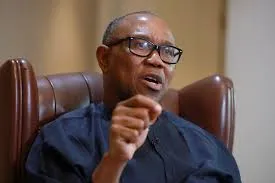
Nigeria’s Democracy Questioned: Insights from Peter Obi
Former Labour Party presidential candidate, Peter Obi, has expressed profound dissatisfaction with Nigeria’s current democratic system following the National Assembly’s recent approval of a state of emergency in Rivers State. In a statement shared on his social media platforms, Obi remarked, “The parliamentary vote held yesterday clearly demonstrates that democracy, in its true sense, does not exist in Nigeria.”
Obi criticized the legislative body’s use of a voice vote to endorse President Bola Tinubu’s declaration, which led to the suspension of Governor Siminalayi Fubara, his deputy, and other elected officials for six months.
He emphasized that democracy cannot thrive without a functional opposition, stating, “Opposition is a critical pillar of any democratic system. It ensures that the right things are done, holds the ruling party accountable, and offers alternative viewpoints.”
Highlighting systemic issues, Obi lamented the absence of proportional representation and laws preventing party defections, which he believes weaken the opposition and undermine the electorate’s will. He called for urgent reforms to entrench true democratic principles, enforce party discipline, and ensure fair representation, warning that without such changes, Nigeria’s democracy would remain fragile and dysfunctional.
In a direct appeal to Labour Party lawmakers, Obi urged them to uphold the integrity of Nigeria’s democracy by resisting actions that compromise fairness, equity, and transparency. He stated, “We must not allow ourselves to become instruments of injustice or contribute to the betrayal of the people’s mandate.”
Obi’s remarks have sparked discussions about the state of democracy in Nigeria, with many citizens and political analysts reflecting on the need for comprehensive electoral and legislative reforms to strengthen democratic institutions and processes.